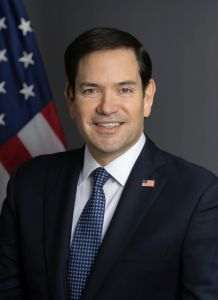• Head of the Central Bank claims that the latter can meet the inflation target for 2009
• The relaxation of the monetary policy will come after the "fiscal policy finds its true place".
A possible loan from the IMF would be used to protect the foreign currency reserves, not to fund the economy, NBR governor Mugur Isărescu, announced yesterday.
"BNR is currently discussing with the Government in order to finalize the evaluation of a foreign loan, in order to determine the amount, the reimbursement schedule and the optimal costs", Mugur Isărescu explained, adding that the IMF is one of the lenders they are considering for a foreign loan, the others being the EU, the IEB, the World Bank and the EBRD.
The Governor did not specify the amount they were considering borrowing in each case, but he said "amounts borrowed from EU institutions and from the remaining sources would probably be similar".
Isărescu said that the rumors floating around concerning the size of the loan are exaggerated.
According to Newsin, the head of the central bank had said the amount needed for funding the public debt, for supporting the private sector would vary between 2 to 4 billion Euros.
"We are considering a balance loan from the EU, but also loans from institutions such as the European Investment Bank. Thirdly, we are considering borrowing money from the IMF in order to protect our foreign currency reserves, as well as from other sources such as the World Bank or the EBRD", Isărescu said.
On the other hand, the governor said that the NBR is very likely to reach its 3.5% inflation target for 2009, with a 1% deviation (2.5-4.5%).
Mugur Isărescu said: "I believe we can reach the inflation target. Besides, the forecast for January is close to our internal forecast, with a small 0,1 percentage point deviation", Isărescu said.
The Governor said that as the fiscal and salary policies "settle", the Central Bank could lower the key interest rate to a level nearing the inflation rate.
Concerning the monetary policy, Isărescu said that the relaxation of the former will come "after the fiscal policy finds its true place". "It is hard to determine what the latter is, because the economy is indeed slowing down", the NBR governor said.
Mugur Isărescu also said: "We did not rush into lowering the monetary policy interest rate, even though we had comments that said that every central bank in the world is lowering rates but us. We have already emphasized the particularities of Romania"s economic cycle".
The Governor showed that the NBR did not intervene directly on the currency market between the first half of 2006 and 2007. Isărescu said that the Central Bank reserves the right to have some unannounced interventions, in order to avoid the destabilizing moves of the exchange rate.
"There was a time, between the first half of 2006, and 2007, when we did not intervene on the currency market, but even then, we did emphasize that the leu has a controlled floating", the governor said.
Isărescu said that the NBR is ready to act in order to prevent destabilizing moves of the exchange rate.
The head of the central bank recently stated that "the market was correct" in its assumption that the NBR sold Euros in order to prop up the leu, in the last few months.
On a different note, Isărescu emphasized that imposing a high level of the mandatory minimum reserves (RMO) for commercial banks allows the Central Bank to use other monetary stimuli to rekindle lending.
Mugur Isărescu said: "This is a good thing, even though the banks have always criticized us on this matter. The requirement for big mandatory reserves allow us to use other monetary stimuli to stimulate lending, and it also allows us to keep the exchange rate relatively stable".
Keeping the minimum mandatory reserves at the highest level in Europe - and among the highest in the world - was necessary in an economy that was "overheated, and going on all cylinders", in order to counteract the procyclical nature of the fiscal policy, the NBR governor said.
"Perhaps after this harsh lesson, everyone will understand how dangerous a procyclical fiscal policy is ", the governor concluded.
In January and February 2009, the Central Bank injected heavy liquidity in the market, through bilateral REPOs, which caused a 8% decrease of the banks" minimum mandatory reserves, with the main goal of this operation being funding the budget deficit, Mugur Isărescu said.
"When considering the monetary impact we also have the multiplication effect of these operations", the governor explained.
On the impact on the evolution of the exchange rate, Isărescu explained that the volatility of the latter was reasonable, when compared with the size of the liquidity injection. At the same time, the governor added that the National Bank cooperated with some of the commercial banks, which is why the interest rates between banks did not go sky high.
























































